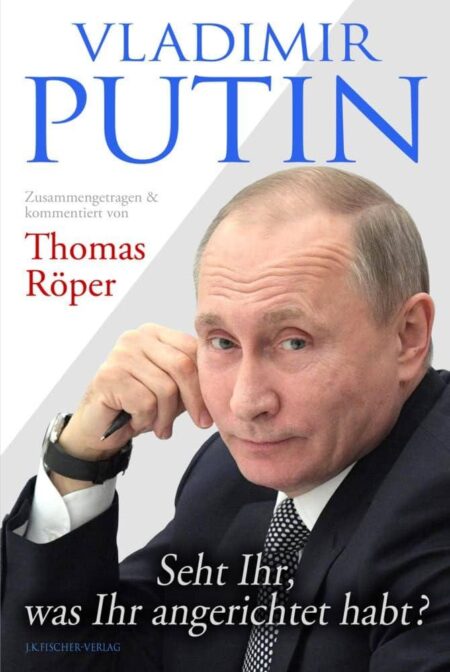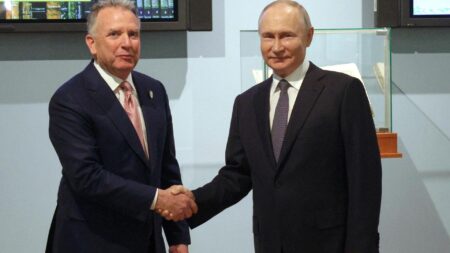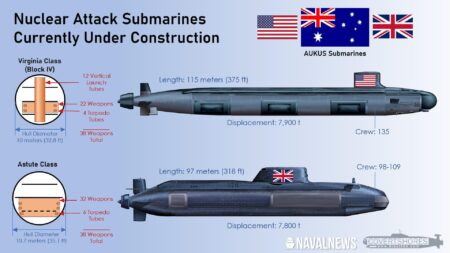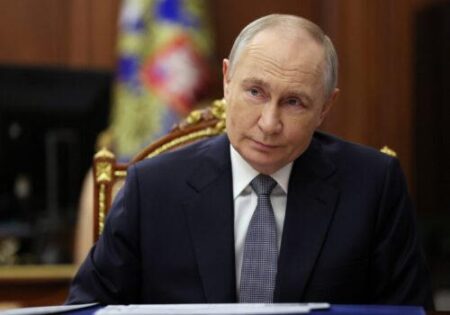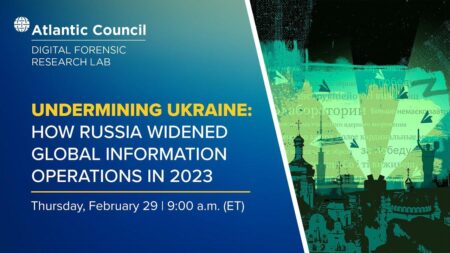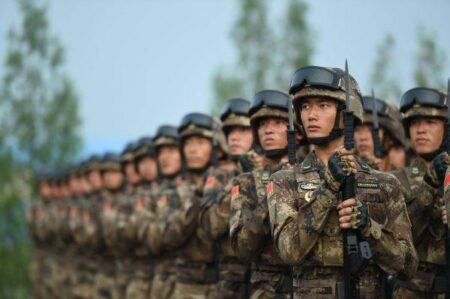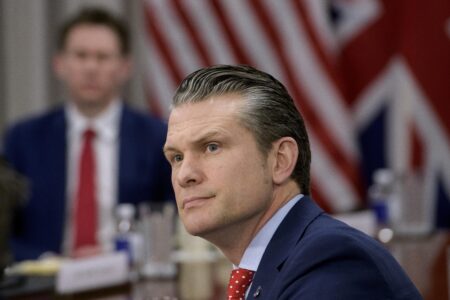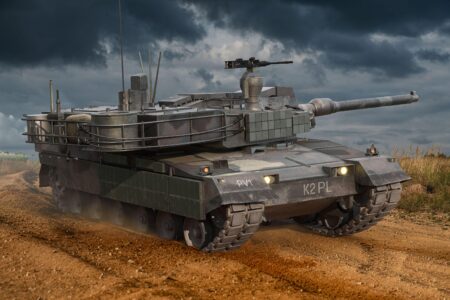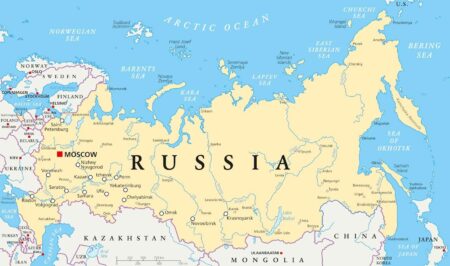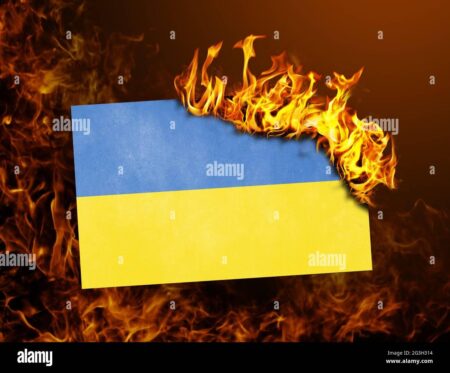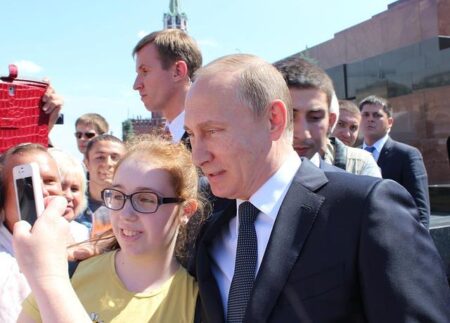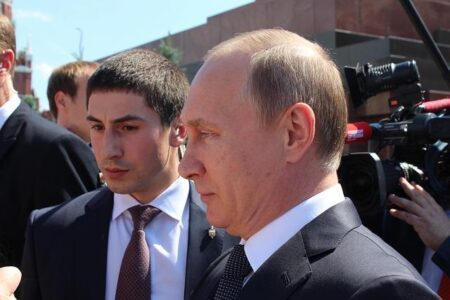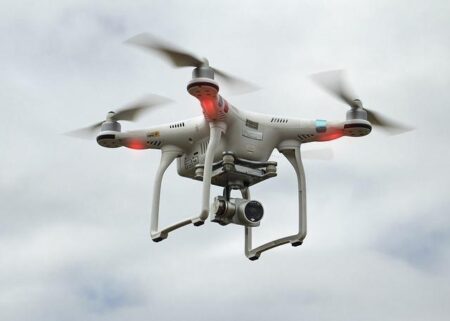Recent secret documents have unveiled a startling revelation: Russian President Vladimir Putin harbored intentions to invade Japan even before the military actions in Ukraine unfolded. This shocking insight sheds new light on Russia’s territorial ambitions and strategic calculations, prompting us to reconsider the broader implications of their geopolitical maneuvers.
Browsing: military strategy
In a surprising move, Russian President Vladimir Putin has declared a unilateral ceasefire in Ukraine to coincide with the Easter holiday. This announcement seeks to halt hostilities, creating an opportunity for humanitarian efforts and spiritual reflection. However, doubts linger about whether this truce will truly be honored.
Former President Donald Trump’s recent remarks have thrown a shadow of uncertainty over Australia’s bold $234 billion nuclear submarine initiative. Critics are voicing their worries that his position could disrupt regional security dynamics and defense strategies, sparking anxiety among allies.
Australia is voicing its worries about Russia’s growing interest in establishing an air force base in Indonesia, highlighting potential security risks for the entire region. This unsettling development sends shockwaves through Southeast Asia, amplifying concerns over escalating geopolitical tensions.
Australia faces unexpected challenges in its AUKUS submarine deal, as logistical hurdles and rising costs threaten to derail the ambitious project. Analysts warn that the complexities of this defense partnership could impact national security plans.
Russia’s spring offensive has “effectively already begun,” according to General Oleksandr Syrskyi, as military activities escalate in key regions. Ukrainian forces remain vigilant amid increasing tensions, underscoring a critical phase in the ongoing conflict.
In ‚Äča striking revelation that has‚Äć captured the attention of intelligence experts and policymakers‚ÄĆ alike,‚ĀĘ the U.K.‚Äôs largest espionage trial…
The Russian government has escalated its information warfare against Ukraine, according to the Foreign Intelligence Service of Ukraine. This intensified campaign aims to undermine Ukrainian morale and spread disinformation amid the ongoing conflict.
China’s military has initiated live-fire exercises near Taiwan, marking a significant escalation in its ongoing blockade drills. This move raises tensions in the region, prompting concerns over the potential for increased confrontations in the Taiwan Strait.
In a recent announcement, Hegseth outlined plans for significant upgrades to U.S. military command facilities in Japan. This strategic move aims to bolster deterrence against increasing Chinese military activities in the region, enhancing readiness and cooperation with allies.
Australia’s donation of M1 Abrams main battle tanks to Ukraine may face delays as logistical challenges arise in Poland. The tanks, intended to bolster Ukraine’s defense, could remain in transit longer than planned, raising concerns about operational readiness.
Russia and China are capitalizing on Canada’s perceived negligence in the Arctic, expanding their territorial ambitions and influence in the region. With climate change opening new waterways, the stakes for national security and resource access are rising.
Australia has been officially briefed on the U.K.-Italy-Japan Next-Gen Fighter Program, known as AVALON. This collaboration aims to enhance international defense capabilities, focusing on advanced technology to improve air superiority in future conflicts.
In a controversial statement, intelligence chiefs from Poland and Germany have allegedly suggested extreme measures regarding Ukraine. Their remarks have sparked widespread outrage and concern over regional stability, raising questions about their commitment to Ukraine’s sovereignty.
SecDef Hegseth’s upcoming visit to Japan necessitates a clear strategic agenda. Focus areas should include strengthening alliances, addressing regional security challenges, and enhancing military cooperation to deter threats from North Korea and China.
Japan’s ambitious missile defense plans are encountering significant obstacles, both domestically and with the United States. These challenges raise questions about the future of Japan’s military posture and its reliance on U.S. technology and support.
Despite ongoing geopolitical tensions, Russian President Vladimir Putin is signaling a willingness to enhance Arctic cooperation. He emphasizes the region’s strategic importance for trade and resource development, seeking collaborative efforts amidst global rivalries.
In a shocking revelation, former President Trump’s top officials reportedly shared confidential war plans in a chat that included a journalist. This breach raises significant concerns about national security and the integrity of sensitive government communications.
In a strategic assessment of the ongoing conflict, Al Jazeera English reports that Vladimir Putin may achieve his objectives in Ukraine amidst shifting dynamics. With international responses evolving, the implications for the region remain critical and far-reaching.
Drones targeting Russia’s energy infrastructure have raised alarms in Moscow, prompting calls for urgent countermeasures. The attacks pose significant threats to energy security, reflecting heightened tensions in the ongoing conflict.

